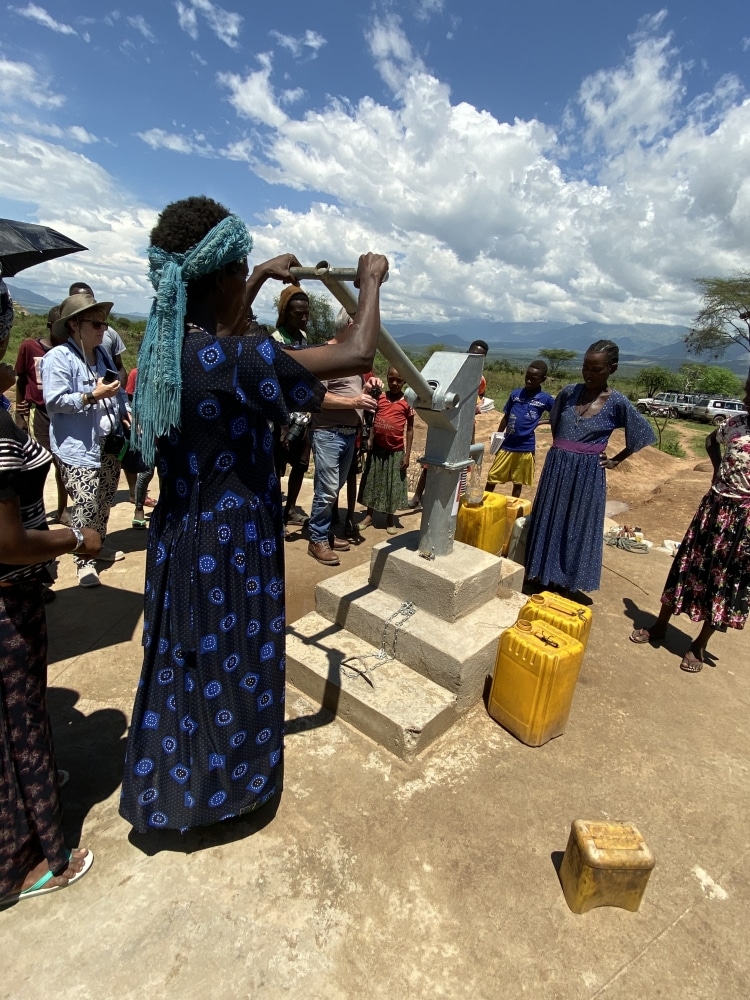Paul Grime is a volunteer speaker for Christian Aid and was chosen by the charity to find out first-hand how climate change is having an impact on the African country.
He visited a range of different projects being undertaken to address these issues by local partner organisations and communities.
The various ideas that are being put into practice are breaking down barriers as well as helping to improve the standard of living.
Paul said: “The places we visited enabled us to see for ourselves the difference that’s being made to people’s lives.
“These people are extremely vulnerable to climate change. They have no buffer. If crops fail and livestock die, they cannot feed their families and their children die.”
One of the programmes provides loans to women’s self-help groups in order to promote gender equality through entrepreneurship.
These groups make a new type of clay stove, which uses less firewood, thereby reducing the impact of deforestation. They sell these ‘imp-roved’ stoves to generate income.
“The women told us how the self-help groups have increased social support and community cohesion,” said Paul.
“The men told us they were initially sceptical about these groups. They are more supportive now that the income from the projects is starting to support the communities.”
Another scheme is to construct barns which enable villages to store two different types of grain to feed their livestock, helping to sustain them through the dry seasons.
Christian Aid’s partners have also improved access to clean drinking water by making pumps from natural underground springs and constructing rainwater storage facilities.
Paul said: “Communities can now pump water in ten minutes instead of trekking up to six hours each day to fetch dirty water from a river.
“People told us how this had transformed their lives. Children can now spend more time in school instead of collecting water.”
This irrigation project is still in progress.
“A canal is under construction to divert river water to potential farmland in a desert region. The men said they would share the farmland so that everyone had fair access.”
Paul added: “There is no doubt that climate change is real. People in the communities we visited told us how it has affected them.
“From 2015 to 2018 there were four successive years of drought. The weather has become less predictable.
“They used to know exactly when to plant their crops and when to harvest them. Now the rains come unexpectedly, or don’t come at all, so their crops fail.
“We asked what we should say to people who do the things that cause climate change. Their response was directed at us. They said: ‘Please consider us.’”








